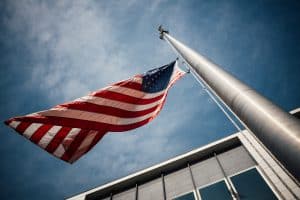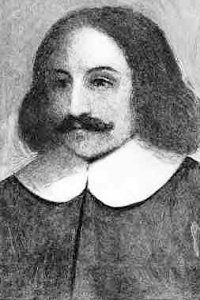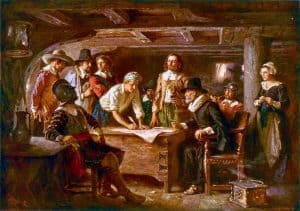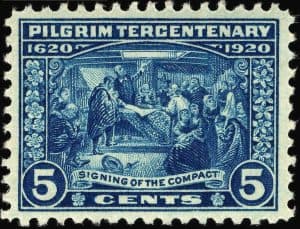Note: Please do not miss this article, which Word Foundations published on November 10: Election 2020: A Declaration of War. In his article, guest writer Patrick Wyett discusses the current landscape of the 2020 election, its potential implications for America’s future, and what you can do to make a positive difference.

Celebrating the 400th Anniversary of The Mayflower Compact
William Bradford was one of the Pilgrims who settled in Plymouth, Massachusetts in 1620. The hardships and blessings the Pilgrims experienced, and especially their response to all of these, provide the historical backdrop for Thanksgiving in the United States. An essential part of the Pilgrims’ story is The Mayflower Compact.

Today, November 11, 2020, is the 400th anniversary of this foundational document in American history. What is the story behind it? Let’s find out.
Bradford became governor of the Plymouth Colony and remained its leader for many years. He recorded the adventures of the Pilgrims in an account titled Of Plymouth Plantation, which is the primary source for this report.
Imagine Bradford is speaking to you in 21st-century English. He might say something like this—
~~~~~~~~~~~~~~~~~~~~~~~~~~~~~~~~~~~~~~~~~~~~~~~
Our congregation of believers left England and moved to Holland so we would be able to worship God freely; then, after 11 or so years, we felt compelled to leave Holland because we were concerned about how the culture was affecting our children. We departed for the New World in 1620, and later in the year than we ideally would have due to circumstances beyond our control. Our arrival here came after a rough ocean crossing on the Mayflower. We landed at Cape Cod in the New World on November 11, 1620. Before we even began to explore the land, we knew there was an important matter of business we had to address.
We were keenly aware that chaos would erupt if we didn’t live together in harmony, so we drafted what is now known as The Mayflower Compact. It was our statement that we would unite in one “Civil Body Politic” and obey the laws that were enacted. Unity and harmony had to be preserved. If we didn’t stick together, we wouldn’t survive!

Here is the document in its entirety, along with our names.
In the name of God, Amen. We whose names are underwritten, the loyal subjects of our dread Sovereign Lord King James, by the Grace of God of Great Britain, France, and Ireland King, Defender of the Faith, etc.
Having undertaken for the Glory of God and advancement of the Christian Faith and Honour of our King and Country, a Voyage to plant the First Colony in the Northern Parts of Virginia, do by these presents solemnly and mutually in the presence of God and one of another, Covenant and Combine ourselves together in a Civil Body Politic, for our better ordering and preservation and furtherance of the ends aforesaid; and by virtue hereof to enact, constitute and frame such just and equal Laws, Ordinances, Acts, Constitutions and Offices from time to time, as shall be thought most meet and convenient for the general good of the Colony, unto which we promise all due submission and obedience. In witness whereof we have hereunder subscribed our names at Cape Cod, the 11th of November, in the year of the reign of our Sovereign Lord King James, of England, France and Ireland the eighteenth, and of Scotland the fifty-fourth. Anno Domini 1620.
William Bradford’s transcription of the Mayflower Compact
-
-
-
- John Carver
- William Bradford
- Edward Winslow
- William Brewster
- Issac Allerton
- Myles Standish
- John Alden
- Samuel Fuller
- Christopher Martin
- William Mullins
- William White
- Richard Warren
- John Howland
- Stephen Hopkins
- Edward Tilley
- John Tilley
- Francis Cooke
- Thomas Rogers
- Thomas Tinker
- John Rigdale
- Edward Fuller
- John Turner
- Francis Eaton
- James Chilton
- John Crackston
- John Billington
- Moses Fletcher
- John Goodman
- Degory Priest
- Thomas Williams
- Gilbert Winslow
- Edmund Margeson
- Peter Browne
- Richard Britteridge
- George Soule
- Richard Clarke
- Richard Gardiner
- John Allerton
- Thomas English
- Edward Doty
- Edward Leister
-
-
Even with God’s help, this wasn’t going to be easy—not by a long shot. Remember, none of us ever had been here before, nor had anyone else we knew. We had no friends to welcome us, nor were there any hotels to check into so we could rest and recover from our difficult voyage across the ocean. Moreover, winter’s cold winds and icy storms were about to bear down upon us! Not only that, but the land before us was more than unfamiliar. It was desolate and inhabited by wild animals, and, quite probably, wild men as well!1
To learn more about the hardships and blessings the Pilgrims experienced in the months and years that followed, go here.
~~~~~~~~~~~~~~~~~~~~~~~~~~~~~~~~~~~~~~~~~~~~~~~
Planting the Seeds of Liberty
It is almost impossible to overstate the significance of the Mayflower Compact and its influence on what would become the United States of America. In an article appearing at The American Thinker, Craig Seibert writes,
The Mayflower Compact is the fountainhead of other civil covenants that followed. It served as the basis for the Fundamental Orders of Connecticut, then the first State Constitution of Connecticut, then, through that, other state constitutions, ultimately having its ideas flow to the U.S. Constitution.
Seibert closes his article by alluding to a personal visit to Plymouth and the surrounding area: “My heart has been stirred to be in Provincetown, Mass. this day.” He continues,
I will be offering this prayer while I am there and I invite you to join me in it: “Oh, God, might you remember this Covenant this day, and renew us to your purpose on this Anniversary Day, for your glory and for the restoration of our land.”
Oh, God, might you remember this Covenant this day, and renew us to your purpose on this Anniversary Day, for your glory and for the restoration of our land.
—Craig Seibert—
I’m praying this prayer along with Craig Seibert. Will you join us?
Copyright 2020 by B. Nathaniel Sullivan. All Rights Reserved.
Note:
1Bradford, William. Of Plymouth Plantation (p. 74-75). Portcullis Books. Kindle Edition. Edited by Harold Paget. Book I, Chapter IX. Go here for more information.


